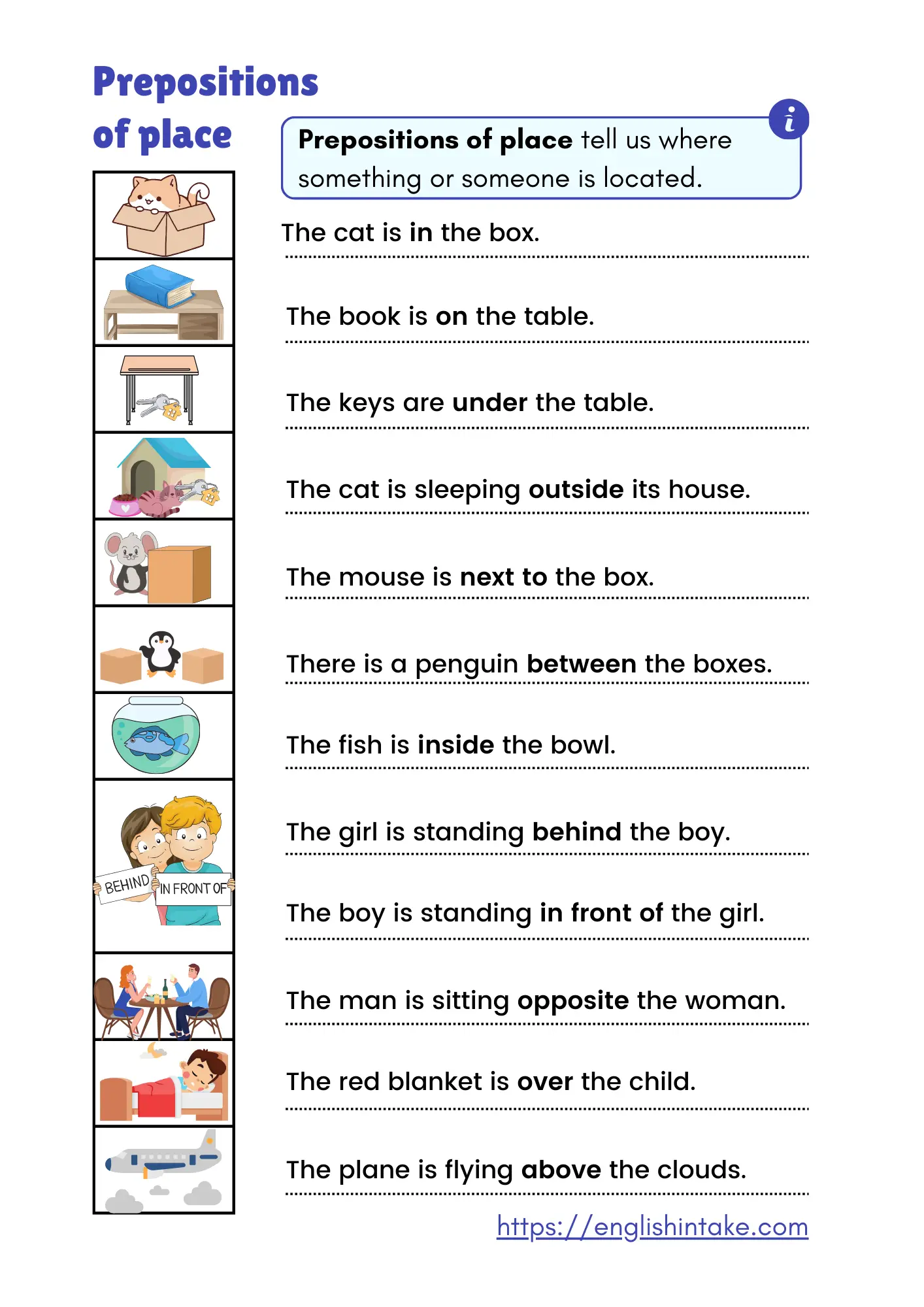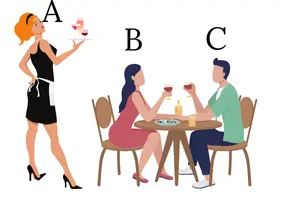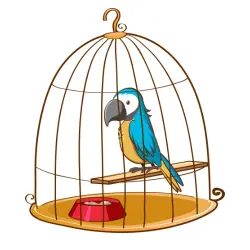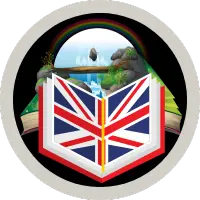1. List of prepositions of place
Prepositions of place tell us where something or someone is located.
- in
- on
- under
- outside
- next to
- between
- inside
- behind
- in front of
- opposite
- over
- above
2. Prepositions of place examples in sentences
You can download this free PDF for illustrated examples of prepositions of place and practise using them in sentences and everyday conversations.

3. Other prepositions of place (advanced level)
You can use the following words as prepositions of place.
from one side to the other or on the opposite side.
1. There is a new convenience store across the street.
2. We had to swim across the river to get to the other side.
directly opposite another place.
1. There is a nice restaurant across from the train station.
2. He lives across from our apartment.
a specific point or location.
1. Let’s meet at the bus stop.
2. He works at the University of Cambridge.
in physical contact with something or someone.
1. She leaned against the bridge.
2. The suspect placed his hands against the wall.
surrounded by other things.
1. The suspects were hidden among the crowd.
2. People were found dead among the rubble.
spread across every part of a place.
1. Processions are held throughout Spain during Lent.
2. Cameras will be installed throughout the city.
close to or next to something or someone.
1. We live by the Rhine River.
2. I prefer to sit by the aisle.
4. Synonyms
A.
The word "under" can be used interchangeably with beneath, underneath, and below. However, under and below can have different meanings. We use below but not under to refer to something in a lower position than something else. However, we do not use below when two things are in contact with each other.
- Many parts of the Netherlands lie below sea level (not under).
- A dead body was found under the Nile River last week (not below).
B.
The word "beside" and next to are synonyms.
- You can sit beside me.
- Your girlfriend is sitting beside a handsome man.
5. Opposite vs in front of
A is opposite B if A and B are facing each other, and A is located on the other side of B.
A is in front of B if B is behind A, and A and B are not facing each other.

B is in front of A.
B is opposite C.
6. Over vs above
"Over" typically means “covering or extending beyond something”, while “above” means “at a higher point or level than something.”
Thus, we use over but not above when there is a contact between the objects being referred to.
- Emilie bound a wet towel over her son’s forehead to bring down his temperature.
- George put his hands over his head while in shock.
- A mouse suddenly ran toward Helen as she was spreading a new blanket over the bed.
We commonly use over instead of above when there is a physical motion.
- The bird flew over the tree.
- We had to cross over a dangerous bridge to reach the island.
- It was around 4 PM when our plane started to fly over the pacific ocean.
7. On vs over
"On" requires that something is touching another thing. This condition does not need to be satisfied while using "over"
When there is physical contact between the objects being referred to and a large area is covered, we usually use over instead of on. We can use all over to emphasise the size of the area being covered.
- Can you put this blanket over the piano, please?
- Do not put your dirty clothes all over the floor.
- The baby spilt milk all over the table.
8. In vs inside
Note that in this section, we are only talking about in and inside as preposition of places. "Inside" conveys the sense of being physically enclosed into something. However, "in" does not emphasise this meaning.

The cat is in the box.

The bird is inside the cage.
9. Other use of the preposition 'in'
"In" refer to countries, cities, and continents.
- She lives in Bradford.
- We stayed in Venice during our last summer holiday.
- Many species in Madagascar are endemic.
- Many people in Africa live below the poverty line.
- The Great Wall of China is one of the most famous tourist attractions in Asia.
If you are ready to do some practice, check this prepositions of place worksheet.
